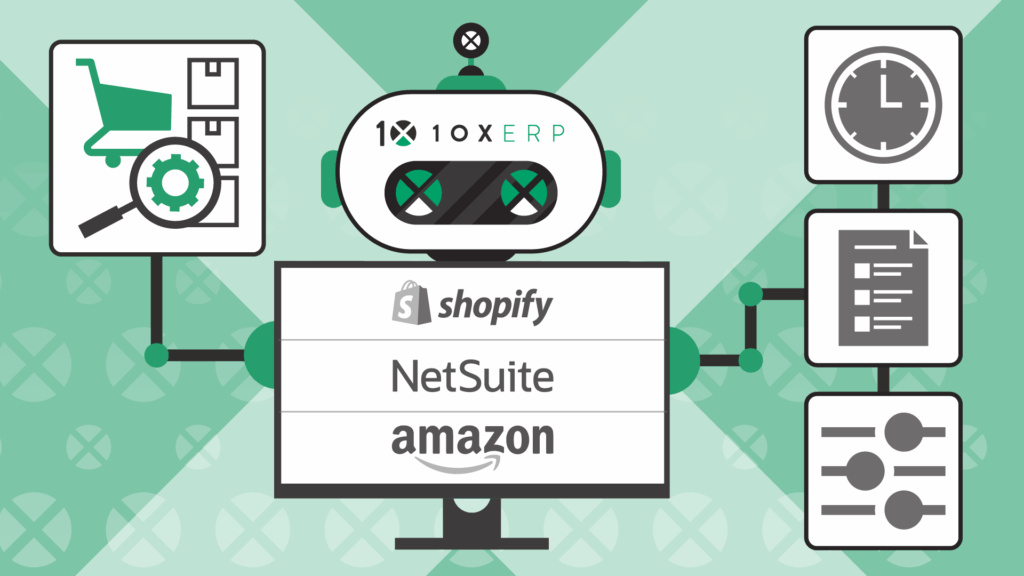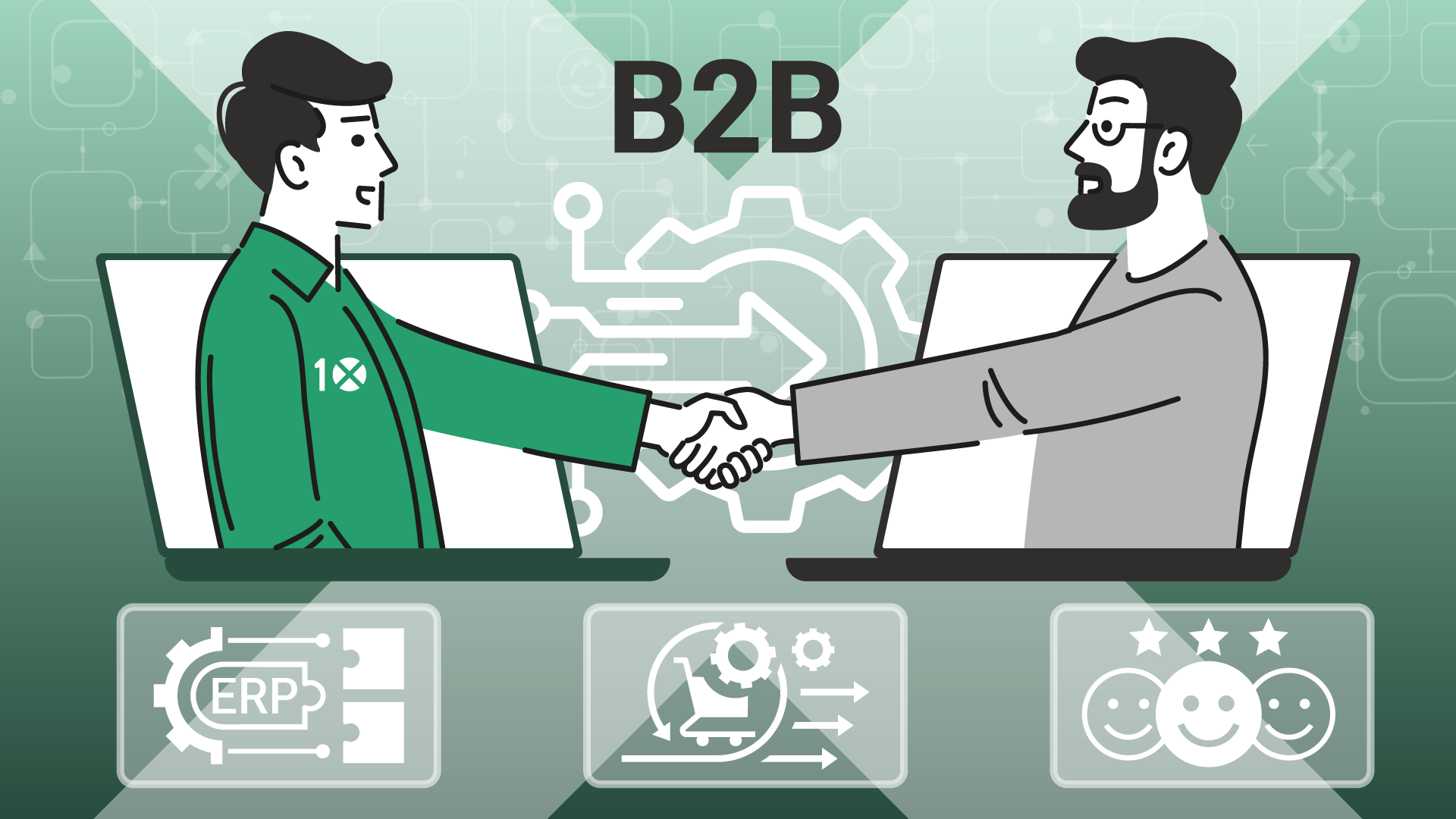Summary
- B2B buyers now expect seamless, self-service purchasing experiences across multiple platforms beyond Amazon, including niche marketplaces like Alibaba, Zoro, and Faire.
- Integrating ERP with these marketplaces automates order flow, inventory syncing, shipping updates, and payment reconciliation, reducing errors and freeing teams from manual tasks.
- 10X ERP’s API-driven architecture centralizes data, adapts to diverse sales channels, and enables businesses to scale efficiently while unlocking new revenue opportunities
When most people think of e‑commerce integrations, Amazon is the first platform that comes to mind. And for good reason—it’s a major player. But for B2B companies, Amazon is only one piece of a much larger puzzle.
Today’s buyers expect the same streamlined experience across all channels—whether they’re purchasing from a branded storefront, a distributor portal, or a B2B marketplace like Alibaba, Faire, or Zoro. To stay competitive, businesses need to move beyond isolated systems and connect their ERP to the entire digital commerce ecosystem.
At 10X ERP, we make it easy to integrate with multiple e‑commerce platforms—so you can automate order flow, eliminate double entry, and keep every customer touchpoint accurate and up to date.

The B2B E‑commerce Shift
B2B purchasing has undergone a massive transformation. Buyers now prefer self-service options, real-time product availability, transparent pricing, and fast fulfillment; all of which rely on strong backend integration.
While Amazon Business has certainly captured attention, platforms like Alibaba, Handshake, Zoro, Faire, Thomasnet, and company-branded portals are becoming equally important for reaching new buyers and scaling sales. And with the rise of niche marketplaces tailored to specific industries or product categories, it’s more important than ever to connect your ERP directly to where your customers are shopping.
Why Integrating Your ERP Matters
Many businesses still rely on manual processes to handle marketplace orders. That means exporting files, uploading them into ERP systems, manually adjusting inventory, and re-entering shipping details. Not only is this time-consuming, but it also opens the door to costly errors.
With 10X ERP, integrations with B2B marketplaces are automated and real-time, ensuring:
- Orders flow directly from the market to the ERP without manual entry.
- Inventory levels sync continuously, preventing oversells or stockouts.
- Shipping and tracking information updates automatically.
- Invoices and payments are reconciled without extra steps.
This level of automation streamlines operations, enhances accuracy, and frees up your team to focus on growth rather than data entry.

Sell Everywhere, Manage from One Place
Whether you’re selling through Shopify, NetSuite Marketplace, Amazon, or a private B2B portal, all your data—orders, inventory, customers, shipments—lives in one centralized system: 10X ERP.
- Unified Order Management: View, fulfill, and track all orders from a single dashboard, regardless of where the order originated.
- Real-Time Inventory Visibility: Ensure all marketplaces reflect accurate stock levels, updated in real-time as soon as sales occur.
- Consistent Product Data: Push accurate product information—descriptions, pricing, and availability—to all your channels.
- Custom Rules Per Channel: Set specific workflows for different platforms (e.g., lead times, freight calculations, margin targets).
With 10X ERP, you don’t need to worry about adapting your business to fit the system. The system adapts to fit your sales strategy, regardless of the number of channels you sell through.
Future-Ready API Architecture
Unlike older ERP systems, which require expensive custom development to integrate with new platforms, 10X ERP is built with modern APIs that support fast and flexible connections.
Whether you’re onboarding a new B2B marketplace or switching e‑commerce platforms, our open architecture ensures a smooth transition and ongoing compatibility. As new channels emerge, your ERP is ready to scale with them—no rebuilding or reconfiguring needed.

The Bottom Line: More Sales, Less Admin
Connecting your ERP to multiple e‑commerce marketplaces isn’t just about efficiency; it’s about unlocking new revenue streams. With the right integrations in place, you can expand to more platforms, reach more customers, and fulfill orders faster, all while reducing the burden on your internal team.
10X ERP is designed to handle this complexity with simplicity, providing you with the tools to scale without introducing chaos. Whether you sell on Amazon, Zoro, your own site, or all of the above, we bring it all together so you don’t have to.
Conclusion
E‑commerce is no longer a side channel. Rather, it is the core of modern B2B sales. In a multi-marketplace world, your ERP must be prepared to integrate, automate, and evolve with you.
Ready to simplify marketplace management and turn every channel into a streamlined, connected experience? Contact us to see how 10X ERP can help you connect the dots, and the data.
